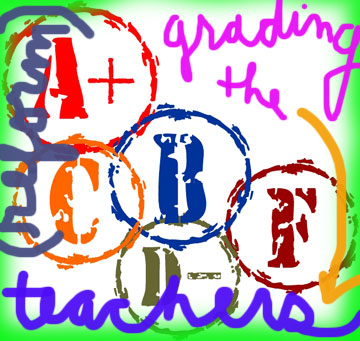It used to be that it was conservatives who railed about public schools— asking for vouchers, wanting to break up big unwieldy districts, furious at the teachers’ unions.
They didn’t really get anywhere.
But in the last few years another kind of push for reform is starting to smash through the calcification that has put US student performance in the bottom third of developed nations. And those doing the pushing are a loose coalition of progressive reformers, high profile charter school founders, like Green Dot’s Steve Barr, a few big, adventurous philanthropists like the Bill and Melinda Gates Foundation, and others like Teach for America’s founder, Wendy Kopp, the New York City schools chancellor Joel Klein—and the Obama Administration’s Arne Duncan.
(A list of conservatives are on board too.)
One of the things the reformers want in this movement spreading across the country, reports Steven Brill in Sunday’s New York Times Magazine, is “to hold public-school teachers accountable by compensating, promoting or even removing them according to the results they produce in class, as measured in part by student test scores.”
What reformers have come to believe matters most is good teachers. “It’s all about the talent,” says Secretary of Education, Arne Duncan.
However, America’s teachers unions, long the stalwart base of the Democratic party, are the main opposition to such reforms.
For instance, Brill writes:
In Tennessee, Gov. Phil Bredesen, also a Democrat, pushed the Legislature to pass laws allowing more charter schools and making student test scores 50 percent of annual teacher evaluations. The statewide teachers’ union ended up supporting both bills.
Bredesen explained the new politics of education in his state this way: “For me there’s a little bit of a ‘Nixon goes to China’ feel about it, because I had done a lot of things that teachers were quite happy with over the years. My argument to them was that this is coming from a Democratic administration. This is not a Republican idea anymore. I told them that I know this goes at the core of what you and your colleagues have been protecting over the years,” Bredesen continued, referring to how he broached the subject of teachers being evaluated and paid based on individual performance ratings. “But now, we’re all going to have to evolve. It’s coming, and you can either help to structure it, or you can fight it, and it won’t be as good.”
Read the rest. It’s one of the best stories I’ve read in some time on the education reform that has exploded in proportion and influence in the last five years. I think you’ll find it worth your time.


It should be easier than to get rid of problem students so a teacher can actually teach. Responsibility for a child’s education is not only determined by the quality of their teachers.
Well, maybe so many teachers have seen their jobs on the chopping block that they’ve given up being so vocal about things like seniority.
Wow. Really excellent article. My big two worries (today anyway) are as follows:
While we know good teachers and accountability are important, it’s very difficult to properly assess quality, especially in a large district with a varied population.
Second, it’s always going to be hard to close failing schools so we need to make strong efforts at fixing them first. While everybody wants to close disastrous schools, stakeholders are very resistant to closing their failing school. Kids, parents and teachers usually want to keep the local school running no matter what. Reformers need to recognize that it will always be harder to close a failing school than a failing laundromat. We need much stronger support systems for troubled schools and I worry that important aspect of reform is being neglected.